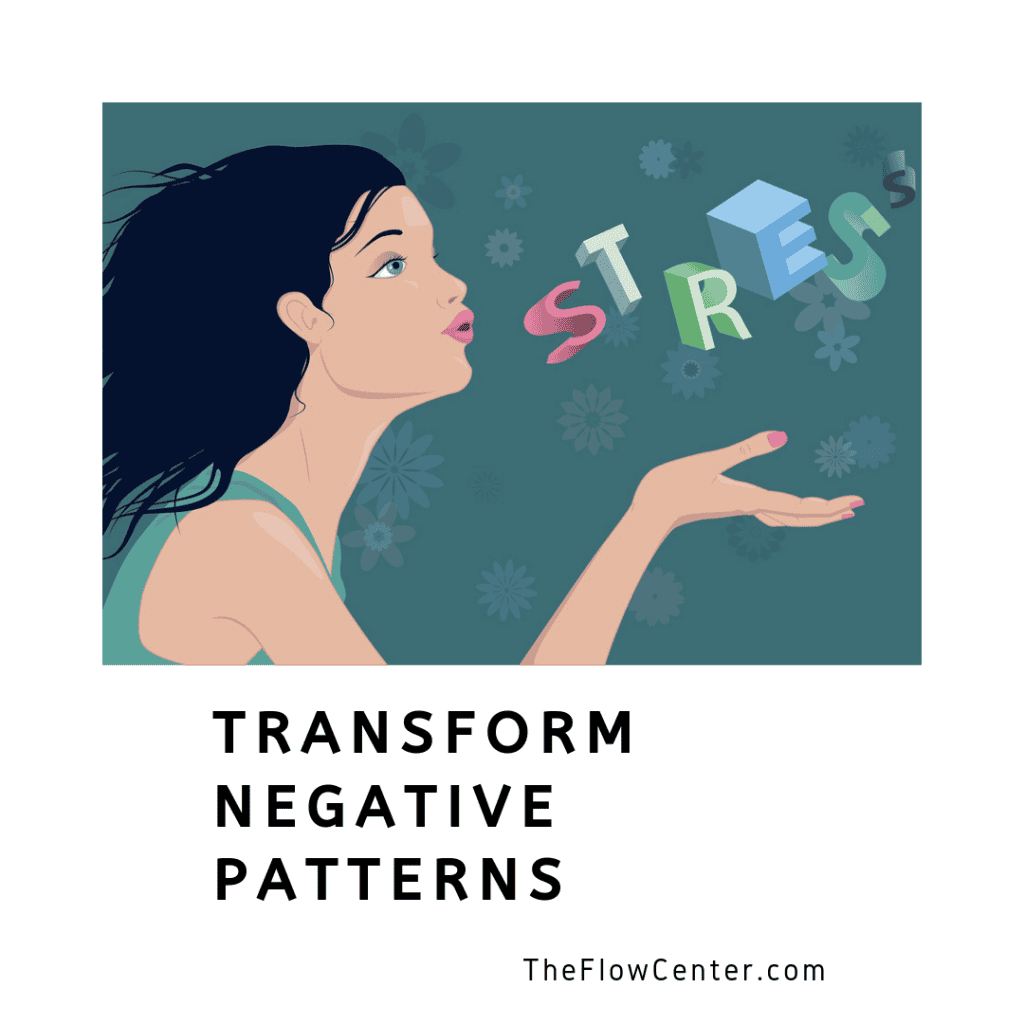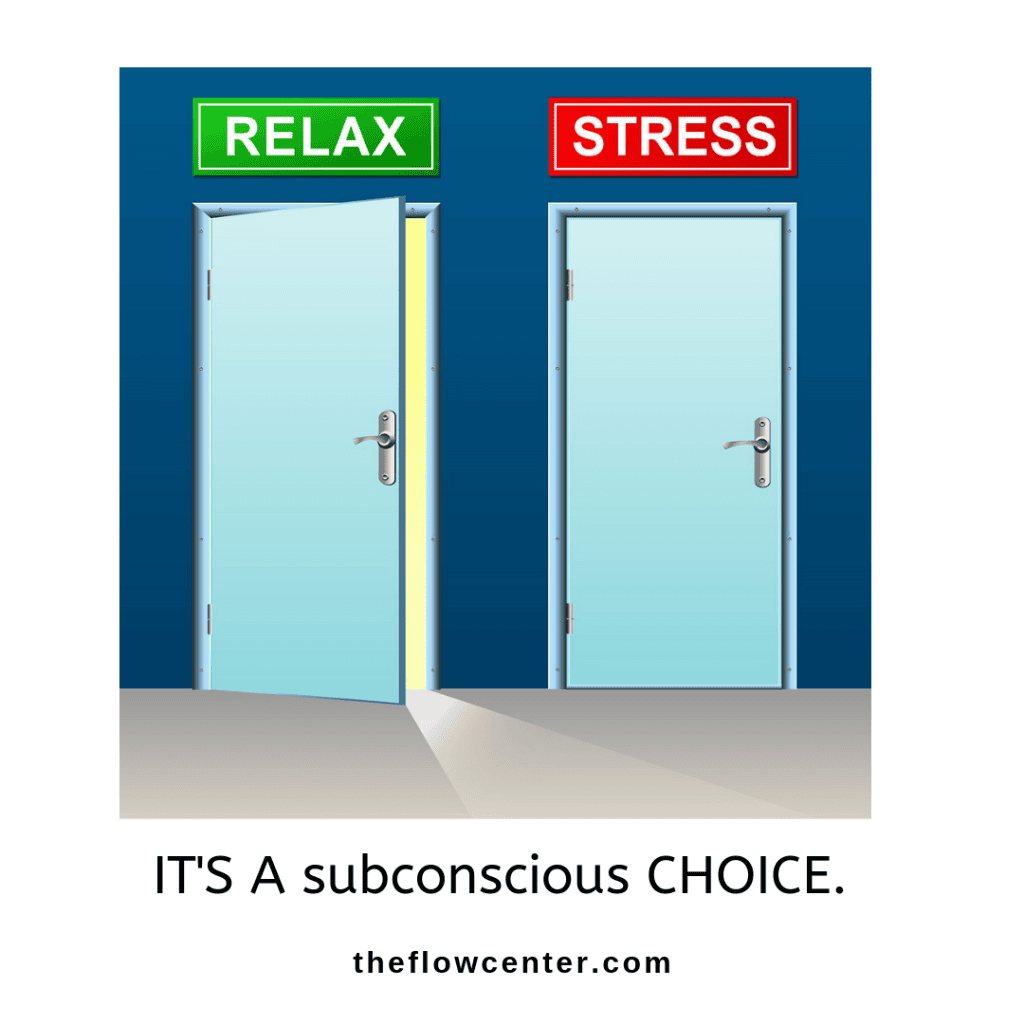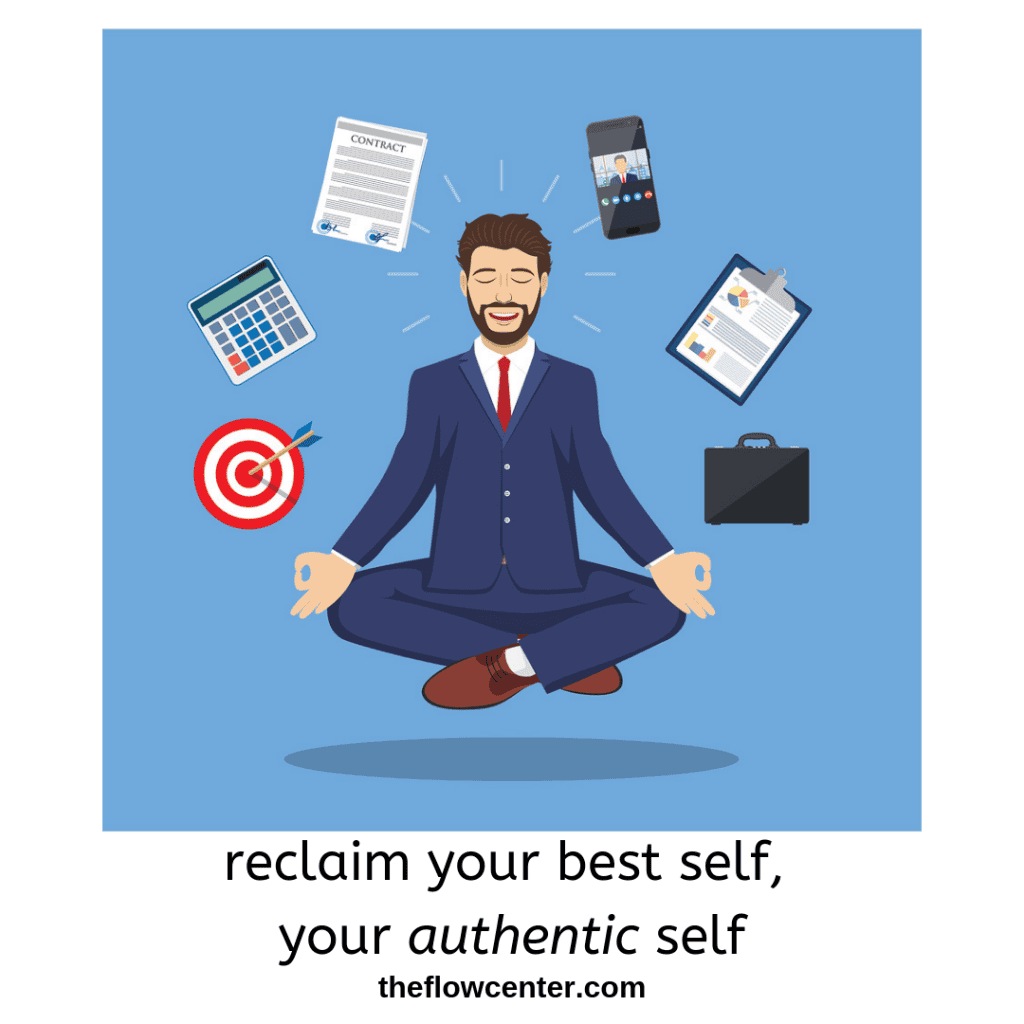When we are stressed we reach for what we think works, those may include:
- Alcohol
- Tobacco and other drugs
- Overexertion
- High-risk behaviors
- Overeating
- Cruelty
- Sex and Orgasm
YOU FEEL STRESSED, SO YOU REACH FOR SOMETHING YOU THINK WORKS.

The reasons people use negative effect methods of stress release remain as complex and varied as the personality itself. Factors may include early, random, or even accidental exposure to that form of release, the subconscious modeling or parental behaviors, peer pressure, beliefs and associations, or simply the fact that other methods were or are not unavailable.
Each of these methods produce a temporary relief from stress in various ways, but all release pent-up stress (energy), sometimes a lifetime of stress. High-risk behavior works through a rush of adrenaline followed by a period of “relaxation” or lassitude. Drugs lead to immediate lethargy. Each method has benefits and liabilities. They all share they primary benefit of producing a sense of satisfaction and a reduction of internal stress. However, over time lose the original effectiveness and the person becomes trapped in a counter-productive pattern.
Hypnosis uncovers and transforms the source of addiction and dependency.

One of the main sources of dependency and addiction to coping methods is stress. Hypnosis brings awareness of your stressors (the cause of your dependency on coping devices) and creates the natural ability to change your current “go to” stress reliever.
Right now, whether you like it or not, your body is choosing the stress response because it lacks a more compelling alternative.
Hypnosis teaches you how to use your mind to control reaction to stress, with hypnosis, you slowly expand the amount of time you are in relaxation mode until your mind and body choose it naturally.
Physically addictive drugs program the user for dependence and create a tremendous fear of withdrawal. Any form of healing and recovery must involve physical, mental and emotional methods of education, inspiration and new positive behaviors such as found with hypnosis. While self-discipline is a necessary attribute for recovery it is not sufficient unto itself. But, hypnosis alone is not a treatment method for addiction and dependency on alcohol and drugs.
Here is an expanded view of various coping methods:
Alcohol is often favored by those who seek a relatively passive or easy way to escape the pain of the everyday world; which is really the pain within their own psyche. Others may use alcohol as a means of finding altered states, or seeing a more open connection with life. Unfortunately, the long-term results are the opposite.
Tobacco and Other Drugs
The method of drugs includes overuse and misuse of social drugs such as tobacco, coffee and even sodas that contain caffeine as well as the misuse of drugs such as uppers, downers and illegal drugs. These drugs produce not only a psychological dependence but a strong physiological compulsion as well.
Illness and injury serve as a common method for children who don’t have ready access to other means of releasing pent-up energy. Those who use this method as an adult may have found as children that illness or injury were among the only ways they got their parents attention and a means to stay home from school or work or to avoid responsibility that seemed burdensome. Children may carry this pattern into adulthood.
Overexertion or overwork become a path for those who feel driven to high achievement, unrealistic standards of fitness or puritanical work values.
Fear serves as a method for many different people for various reasons. Phobias or panic attacks often come to those who feel repressed or inhibited and who refrain from using other methods, or during times of unusual stress when usual means aren’t enough. Those who are more extroverted may consciously choose suspenseful, shocking, humorous or sad movies. Thrill seeking, gambling, or other high-risk behaviors may be motivated by the drive for excitement, getting high, and living on the edge. Crime is often used by those who are under-skilled, under-educated, or who feel angry at what they perceive as unfair society.
Overeating may serve as a psychological insulation from life or as a perceived protection against unwanted attention for those who have been sexually abused. It may also result from lack of education about food, familial pressures, or blocked creativity. Our subconscious mind may have associations between food, especially sweets and treats, and a form of love or indulgence; they may be trying to fill a lack that will never be filled until they learn to love themselves and feel loved. Not everyone who uses overeating as a means of dissipating energy becomes obese. Some people overeat and then over-exert; those with eating disorders such as bulimia binge then purge. Ironically and sadly, the self-imposed starvation of anorexia, the opposite of overeating, also lowers the energy level, leaving a feeling of artificial lightness and lassitude – a form of tension relief that can prove seriously debilitating and eventually fatal.
Cruelty serves those feeling tremendous inner pain, self-hatred, and frustration (though it may not show at the surface). Work with a therapist and support group can help break through the walls of agonizing childhoods so that they can feel loved and cared for.
Orgasm, like food, services as a primary biological drive to release and is easy to access. And when in a committed relationship, seeking this release outside of that bond becomes a problem.

How To Reduce the Effects Stressors Your Environment: Work – Home – Socially
You can’t always change the situation, but you can change your reaction.
If your methods of coping with stress aren’t contributing to your greater emotional and physical health, it’s time to find healthier ones. There are many healthy ways to manage and cope with stress, but they all require change. You can either change the situation or change your reaction. Hypnosis changes your perception of the stressor and therefore your automatic response. It is helpful to that process to consciously make decisions that get you off the stress induced game board of life.
Here are some examples:
- Pare down your to-do list
- Avoid hot-button topics
- Take control of your environment
- Avoid people who stress you out
- Learn how to say “no”
- Do breathing exercises
- Exercise
- Get outside
Since everyone has a unique response to stress, there is no one-size-fits-all solution to managing it. No single method works for everyone or in every situation, so experiment with different techniques and strategies. Focus on what makes you feel calm and in control.
Hypnosis helps you tackle many of these problems by disconnecting your memory of being stressed out. The result: you are clam, and possess clear confidence in any situation. Everyone likes to have some control over the situation. In hypnosis sessions, you’ll learn how evoke the relaxation response to cope with pressure, win back control, and live a happier, more relaxed life.
HOW YOUR BODY REACTS TO STRESS

Stress is a physiological and psychological response (heart beats faster, digestion slows, muscles tighten) to a condition (stressor) that threatens or challenges a person and requires some form of adaptation or adjustment (feeling like you need to run away, protect yourself, fight back) and it is something we learned through genetics and the behavior or our parents, grandparents, and others.
Fight or flight is the sympathetic nervous system’s response to stress, preparing the body for action but usually none is taken. However, the body still produces glucocorticoid which leads to high blood pressure and suppression of immune system, weakening of the muscles and damage to the hippocampus area of the brain.
A stressor is any stimulus or event capable of producing physical or emotional stress:
- Workplace issues
- Unemployment
- Racism
- Catastrophic events
- Socioeconomic
- Relationships
If we can understand the following concept we can manage our reactions to stressful situations:
It isn’t life situations, but how one reacts to them and the attitude toward them that determines a positive or negative effect on one’s life. David Hawkins Power Vs. Force.
DID YOU GET ‘SET UP’ TO BE STRESSED OUT?
It begins as early as age four.
By age four to seven and up through adolescence, our original state of innocence gives way to expectations, disappointments, anxieties and stress. As our Conscious Self – the sense of separation and individuation – becomes more defined we experience social conflicts, competition and authority issues; and life seems more complex.
Hypnosis helps you reclaim your best self, your authentic self

Adolescence in particular involves a time of high ideals and corresponding disillusionment with the adult world. The relatively safe protected world of childhood has dissolved, as in waking from a pleasant dream into the cold light of reality. Hormones run wild and physical changes create awkwardness and imbalance. Therefore, teens are prone to experiencing painful obstructions and are extremely vulnerable to addictive behaviors to relesae the stress.
Hypnosis transforms the shadow self and negative patterns
In addition, children are raised with an attic full of subconscious artifacts. Along with their love, their genetic strengths, wisdom and their talents, parents passed along to their children their shadows and their fears, their negative patterns and their addictions.
Even in the best family circumstances, few parents are fully enlightened, happy, secure and nurturing.
Hypnosis can heal those wounds and release addictive behaviors
Practically everyone has been wounded on the path between birth and the present. And the scar tissues of these wounds have helped form the obstructions in the body, mind and emotions. The results are the same: addictive behaviors to release stress.
WAITING FOR THE NEXT STRESSOR?
Hypnosis creates a state of mind to examine your out-dated, counter productive beliefs and perceptions about stressors. It is a natural state of focused attention that allows powerful transformations like the Relaxation Response that are lasting because they are subconscious. Think of it this way, you learned those concepts and anything you learned you can un-learn through hypnosis. Call 972-974-2094 for a consultation, or schedule an appointment.
This article was written by Valerie Grimes, CHt Director and Owner of The Flow Center for Hypnosis in Dallas, TX.

